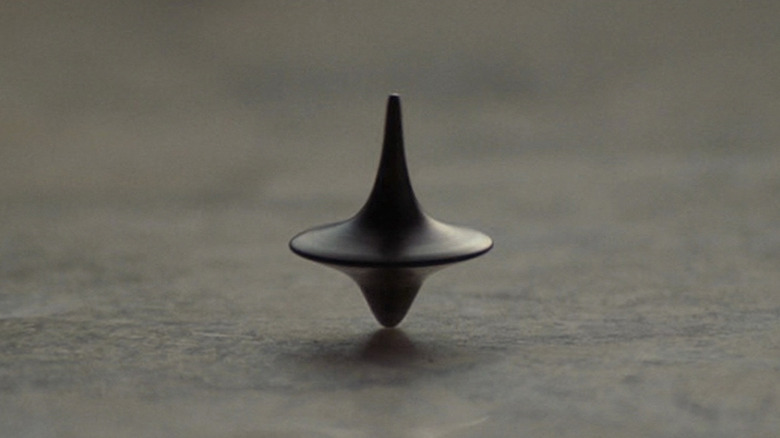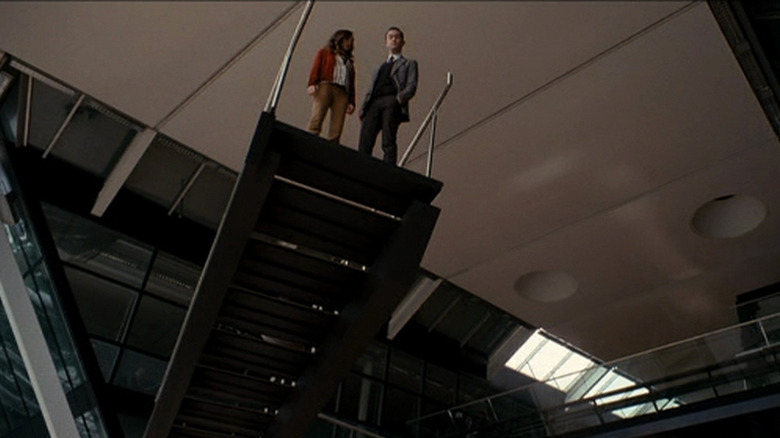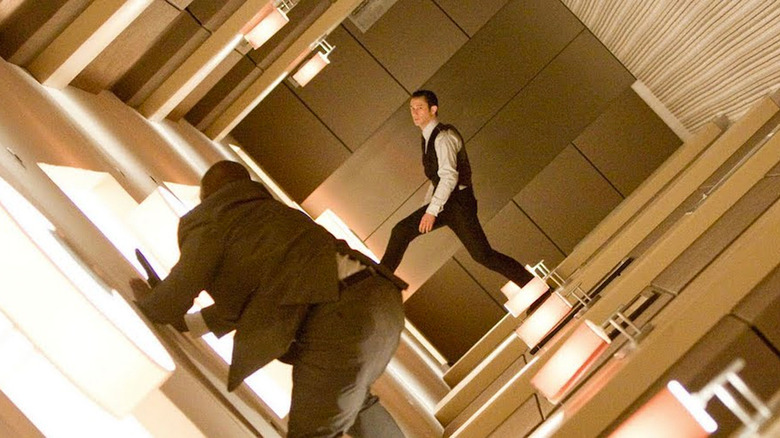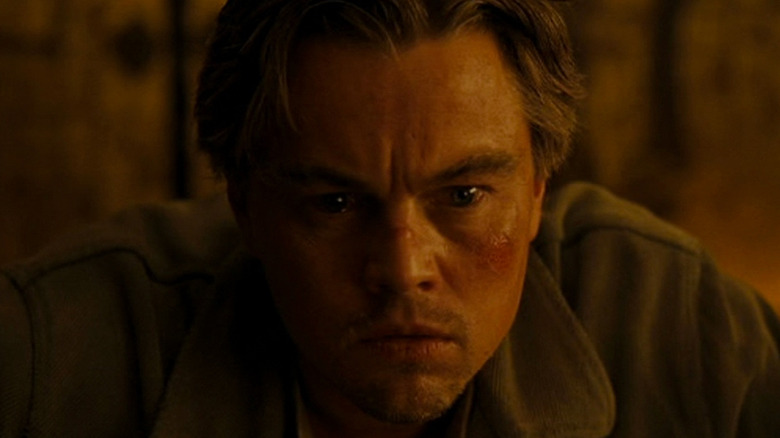Will There Be A Sequel To Inception? Here's What We Know
Christopher Nolan's mind-melting work will forever live rent-free in the minds of his fans. Since breaking onto the scene with "Memento" in 2000, the director has pushed the boundaries of space, time, and the human condition. His cerebral, immersive worlds have only grown more complex and confounding as the years pass, but few of his films have made such an unshakable impression as "Inception."
It's only natural that a film exploring the consequences of subliminal suggestion has planted such an unrelenting curiosity in our collective psyche. The film resonates as much now as it did when it first premiered over a decade ago, spawning countless theories about what happened to Leonardo DiCaprio's Dom Cobb. Had he really made it back to his family and not some dream-induced iteration of them? Did his totem, a top that perpetually spins to indicate an artificial world, actually fall just after the film cut to black, or is it still spinning to this day?
These questions have only festered under Nolan's customary evasion. The filmmaker can't escape the questions of "Inception" and a possible return to that world. Even "Tenet," the director's latest film, was theorized as a loose follow-up to it. That theory was obviously foiled after "Tenet" was released — but does it mean we'll never see an "Inception" sequel?
A Sequel Is Not in the Works...
Currently, there's no concrete proof that an "Inception" sequel is in development. With the exception of his ideas for an "Inception" video game, Nolan has never expressed much interest in returning to that world, and that aligns pretty soundly with his aversion to sequels in general. The only films he's made that are connected by more than just loose themes are those in his "Dark Knight Trilogy." Most of his projects tell a contained story and are designed to stand alone.
Though he doesn't always continue a story in a sequel, Nolan has been known to expand on a single concept across multiple films. The guilt of a father separated from his children is explored in both "Inception" and "Interstellar." The director is also known to center his stories on characters (and, by extension, actors) that resemble him in some way. The brooding, obsessive protagonist is a staple in most of his films, which can make his work seem like an outlet to express his internal struggles.
That also could explain why Nolan is so reluctant to return to a world he's already explored. His films represent a sort of catharsis for the director. As his concepts evolve and take on more complexity — like the jump from the subliminal in "Inception" to space in "Interstellar" and, finally, time in "Tenet" — so do the subjects that concern the director.
...But Inception's Story Has Continued In Other Ways
As frustrating as those unanswered questions can be, it's important to note that mystique is an integral part of Nolan's work. He's resonated with so many and cultivated such a loyal fandom because of the mysteries shrouding his films. Cobb's story was told pretty succinctly in "Inception." It didn't end as definitively as some would have hoped, at least not in terms of his external development. But internally, Cobb's acceptance of his reality — whether it be dream or otherwise — is what makes "Inception" so satisfying. If a sequel were to open that door and try to explain what really happened, it would feel like a regression, and it'd undermine the significance of "Inception."
More than that, the world of "Inception" has already been explored further — just not in the way some fans might have hoped. Warner Bros. released two companion comics after "Inception," both of which explored the events that directly preceded the film. "The Cobol Job" and "The Big Under" were released on the now-defunct "Inception" website, but they offered a bit of context into the heist that opens the film.
If a film connected to "Inception" were ever developed, it would likely find more success as a prequel. Rumors persist in certain corners of the internet that Nolan is developing a spin-off, one which would serve as an opportunity for his brother Jonathan to direct his first big feature. But those are unsubstantiated claims, and there's nothing to confirm that a supplementary film will ever actually happen.
Nolan Seems to Have Moved On
Nolan is not at all afraid of subtext in his films, and his occasional use of paladins as main characters is no exception. Leonardo DiCaprio resembled the director as Cobb in "Inception" — to the point where Robert Pattinson's visibly-blonder appearance only fueled the idea that "Tenet" could be a sequel, one that might pivot the focus to Cobb's children. Though Pattinson's character was not Cobb's son, his similarities to Nolan still allude to the director's proclivities as a storyteller.
Like with "The Dark Knight Rises" and "Interstellar," "Tenet" was concerned with passing the torch. "Tenet" saw the debut of Nolan's first non-white protagonist in over 20 years of filmmaking. The fact that Pattison leads John David Washington's Protagonist on a crash course of space and time throughout the film, only to leave him the keys to the kingdom at the end, is very telling. It shows Nolan is concerned with legacy, but also with building up a new generation in his own image.
It's clear the director's hands will be full with the upcoming "Oppenheimer," so if fans want Nolan to return for an "Inception" sequel or spin-off, they should probably start planning a mind heist of their own.



